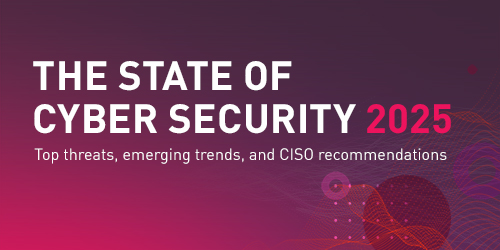The Cloud Shared Responsibility Model
When making the move to the cloud, an organization hands over a certain amount of responsibility for its IT stack. Unlike with an in-house data center, an organization is not wholly responsible for maintaining and securing its IT stack in the cloud. Based on the cloud service model selected (SaaS, PaaS, IaaS, etc.), the cloud service provider is wholly responsible for the operation, maintenance, and security of some levels of the customer’s IT stack.
However, this does not mean that a company has no responsibility for its own IT management and security. In all cloud models, the customer has access to and control over some aspect of their cloud deployment. Under the shared responsibility model, it is the cloud customer’s responsibility to secure the components of their cloud deployment that are under their control.
Benefits of Comprehensive AWS Security
AWS provides a wide range of security controls, configuration settings, and defenses to secure the data and applications hosted in their environments. These include a network firewall (AWS Network Firewall), protection against distributed denial-of-service (DDoS) attacks (AWS Shield), a web application firewall (AWS WAF), and multiple other security and compliance solutions.
However, for companies with enterprise-grade security needs, it may be necessary to augment these built-in tools with third-party solutions. Augmenting AWS’s built-in security controls with third-party security solutions enables companies to achieve enterprise-grade protection of their AWS-based deployment. Some of the benefits of deploying AWS security include:
- Comprehensive Compliance Management: Companies are subject to a growing array of regulations, each with its own requirements. Automated compliance management simplifies compliance by identifying potential compliance gaps and enforcing security policies.
- Automated Threat Remediation: Manual threat remediation consumes significant resources and often leaves the organization vulnerable. Automated remediation of dangerous misconfigurations keeps cloud infrastructure secure and compliant.
- Policy Visualization: Complex cloud infrastructure and security configurations can be difficult to understand, leaving security gaps. Visualizations of cloud-based assets make it easier to design, audit, and enforce corporate security policies.
- Centralized Management: A sprawl of standalone security solutions results in complex management and inconsistent security policy enforcement. A single point of authority that manages misconfigurations, security threats, and policy enforcement simplifies and improves cloud security.
- Intelligent Security: Security teams often suffer from a lack of usable security data, whether due to a dearth of threat intelligence or an overload of low-value alerts. Integrated threat intelligence and alert management support more effective threat hunting and forensics in AWS.
Extending AWS Built-In Security
Check Point has developed a comprehensive security solution tailored to AWS environments. Some of the key services and features that it incorporates include:
- Advanced Threat Prevention: Industry-leading threat prevention technologies ensure protection of AWS-hosted assets. Integrated security protections include a next-generation firewall, intrusion prevention system (IPS), antivirus, antibot, IPsec VPN, secure remote access, data loss prevention (DLP), and sandboxed prevention of zero-day threats.
- Complete Visibility and Control: Unified security visibility and management across on-prem and cloud environments enables secure cloud migration and hybrid cloud architectures.
- Multi and Hybrid-Cloud Security: Most large organizations have a multi-cloud or hybrid-cloud strategy and require their security to be consistent and efficient across public and private clouds, all managed from a single-pane-of-glass.
- Cloud-Native Integrations: Integration with built-in security controls and configuration settings of the AWS cloud environment enables an agentless, cloud-native security architecture.
- Consolidated Logs and Reporting: Integration between on-prem and AWS-based security architecture provides centralized and consolidated security visibility, threat management, and compliance monitoring.
- Rapid and Flexible Deployment: Cloud-native security protections enable rapid deployment and high configurability based on predefined templates, AWS best practices, and custom modifications.
- Serverless Security for Lambda Functions: Security solutions tailored to the unique needs of serverless applications with workload protection and access management for Amazon Lambda functions.
- Container Security and Workload Protection: Containerized applications face unique security risks and attack vectors. Automated security integrated into DevOps pipelines identifies and addresses vulnerabilities before they pose a risk to the organization.
- Cloud Security Posture Management (CSPM): Cloud security misconfigurations are a leading cause of cloud data breaches. CSPM enables an organization to minimize configuration risks by automatically identifying and correcting security misconfigurations.
- Cloud Application Security: Web applications and APIs hosted in AWS may contain exploitable vulnerabilities. AI-based runtime protection of web applications and APIs prevents attacks without the need for human intervention.
- Developer Security: Applications face numerous security risks, including exposure of authentication secrets (API keys, credentials, etc.), supply chain exploits, and other threats. Automated scanning and monitoring for common application security risks within DevOps pipelines limits the risk to the security of corporate applications, APIs, and cloud-based assets.
AWS Security with CloudGuard
While transitioning data and applications to the cloud can provide significant benefits to the organization, many companies worry about the security implications of making the move to the cloud.
Check Point CloudGuard provides AWS security and eliminates these concerns by providing cloud-native enterprise-grade protection for AWS deployments. CloudGuard enables an organization to extend its existing protections to its AWS deployment, allowing it to take advantage of the productivity and scalability benefits of the cloud without compromising on security, as well as addressing cloud-specific security risks and attack vectors.
Check Point also offers a free AWS Security Checkup to enable organizations to identify how their existing security configurations, controls, and solutions are protecting their AWS deployments. The free CloudGuard Checkup provides additional cloud security insights with over 100 compliance and security configuration checks.
After taking these Checkups and learning about the vulnerabilities and security challenges that your organization’s AWS deployment is facing, learn how to eliminate these issues with Check Point CloudGuard for AWS by signing up for a free demo.





